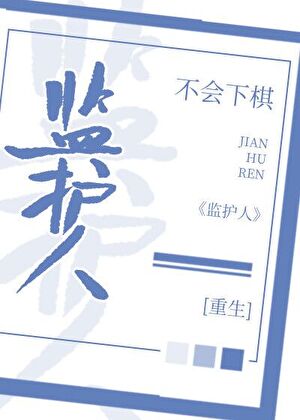“Your supermarket is giving away so many cars as part of the promotion—what’s the harm in giving me one? They’ll all be handed out eventually anyway.”
“Rather than letting someone else benefit, why not just give it to me? You’re the deputy manager, after all. A small favor like this should be nothing more than a word from you.”
Song Hui coaxed while carefully observing Yao Qianshan’s reaction. Seeing her hesitation, he pressed further.
“If I get this car, I swear I’ll never bother you again. We’ll part ways cleanly! You get what you want, and I walk away with a prize—isn’t that a win-win?”
His words were smooth, but his mind was scheming.
If Yao Qianshan agreed and acted on it, she’d be handing him leverage over her.
With that leverage, it wouldn’t just be a car—her money, even her freedom, would be his to control.
If she dared disobey, he’d expose her to the company.
She’d lose her job, maybe even face legal trouble and jail time.
Song Hui’s plan was crystal clear in his mind.
At an ordinary company, under his threats and persuasion, Yao Qianshan might have caved just to be rid of him.
A little under-the-table manipulation wouldn’t be hard for someone in her position.
But Wanlong Supermarket was different—its backers were no ordinary force.
Especially the young mistress. She had zero tolerance for shady dealings.
Once, a school official won a microwave in a store promotion—an inside job meant to curry favor.
The young mistress didn’t hesitate: she fired the entire team responsible, replaced them, and issued a stern warning.
Since it was a first offense, no one was dismissed, but future violations wouldn’t be so lenient.
Beyond that, Wanlong’s promotions were transparent.
Other stores’ prize draws were vague—no one knew if the big prizes even existed.
But Wanlong published the odds, showing exactly how many tickets were left and the daily probability of winning.
As tickets dwindled, the odds improved, updated daily.
As for the cars advertised as prizes? They came with only a one-year lease—but no one would come to reclaim it. You could drive it into the ground if you wanted.
In short, Wanlong’s promotions were strictly aboveboard.
Parking lot.
After a long internal struggle, Yao Qianshan clenched her teeth and agreed. “Fine, I’ll do it.”
Song Hui nearly leaped with joy. “That’s more like it! Don’t worry, Qianshan—I’m a man of my word. Once I have the car, I’ll vanish. No more trouble.”
They walked back toward the supermarket, one after the other.
Song Hui was already fantasizing about the future—holding Yao Qianshan’s secret, owning a car, and controlling her at will.
In this era, a car was an unattainable luxury, not yet the common sight it would become.
Few households in rural areas owned one, though minivans were more common—useful for hauling goods or passengers.
Even in the city, true car ownership was rare.
Anyone behind the wheel of a sedan was considered wealthy.
Just as Song Hui was savoring his imminent car ownership—
Suddenly!
Several black-clad men appeared from behind, restraining him without a word.
Song Hui thrashed and shouted, “What the hell?! Let me go! Yao Qianshan! What’s the meaning of this?!”
Yao Qianshan stood a few steps away, her earlier hesitation replaced by icy detachment.
She watched his frantic struggle coldly, then pulled a recorder from her pocket and pressed play.
“That’s more like it… Once I have the car, I’ll vanish, no more trouble…”
“……”
Song Hui’s face paled. He hadn’t expected her to be this cunning—carrying a recorder.
This habit was influenced by Wanlong’s inner circle, who documented everything.
“You—you set me up?!” he snarled.
Yao Qianshan smirked. “Song Hui, did you really think I’d risk my career and future just to shake you off? I’ve studied law under top attorneys.”
“If I’d done as you asked, I’d be guilty of professional misconduct.”
“But now? You’re the one committing a crime—extortion.”
Panicked, Song Hui stammered, “I—I was just joking! Qianshan, for old times’ sake, let me go. Please!”
“Old times?” She laughed bitterly. “The moment you threatened me, all that remained between us was the law.”
“Take him away.”
The men nodded. “Yes, Manager Yao.”
This distinction highlighted the gap between core and non-core members.
Had Yao Qianshan been part of the inner circle, they’d have called her “Sister Yao,” not “Manager.”
Joining the core wasn’t impossible—just required an application.
Nowadays, core membership wasn’t automatic. You had to apply.
What did that mean?
To become a core member, you submitted a written request.
If approved, the company arranged regular legal training on Wanlong’s principles.
Only those whose values aligned perfectly with the company’s ethos—and passed a second-round legal exam—earned core status.
Fail either, and you’d never make it.
These hurdles were designed to weed out the uncommitted.
Truthfully, benefits for regular and core employees weren’t vastly different.
As Ma Da often said, the rigorous process ensured loyalty, comprehension, and flawless execution.
After Song Hui was hauled off, Yao Qianshan felt no relief—only unease.
She knew he wouldn’t give up so easily.
The recording might secure a conviction for attempted extortion, carrying a two-to-three-year sentence.
But as a first-time offender with a show of remorse, he’d likely get probation or bail before trial.
Her fears proved right. Song Hui was bailed out swiftly.
And after leaving the station, he coincidentally met a few men from Danan City.







